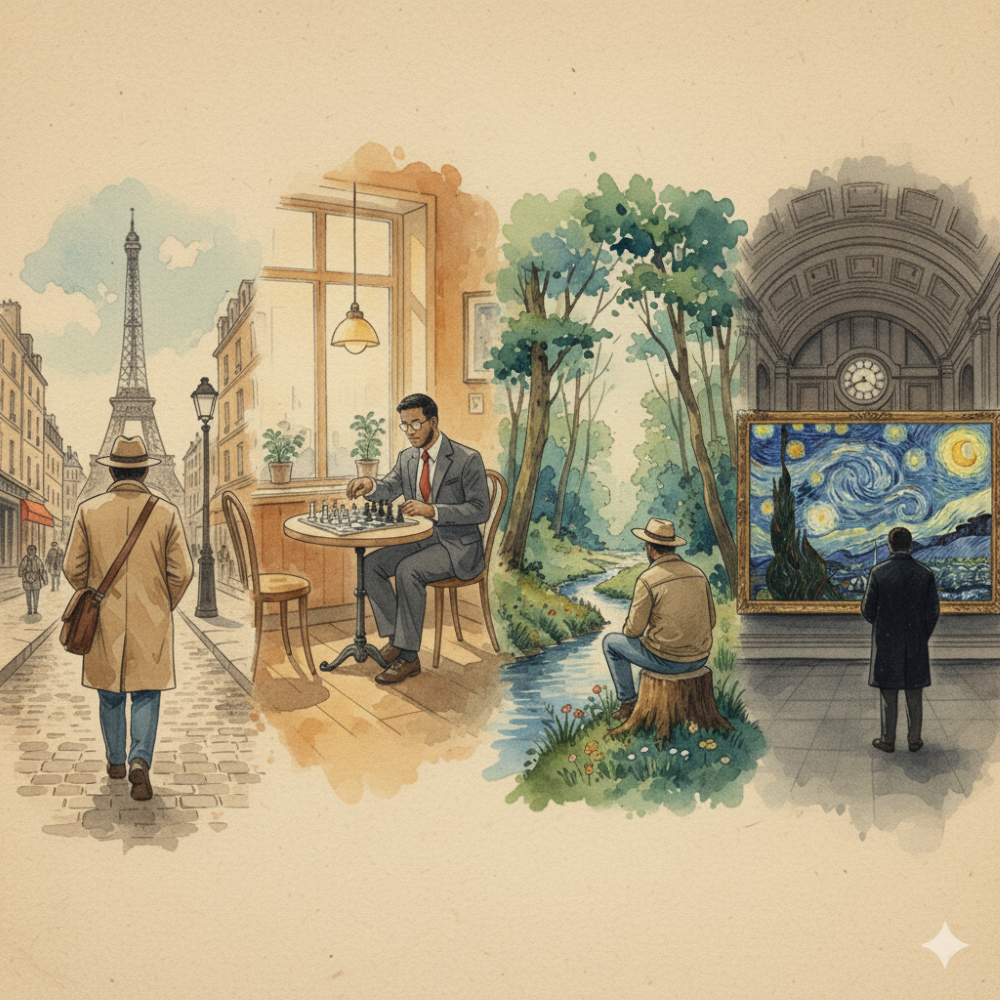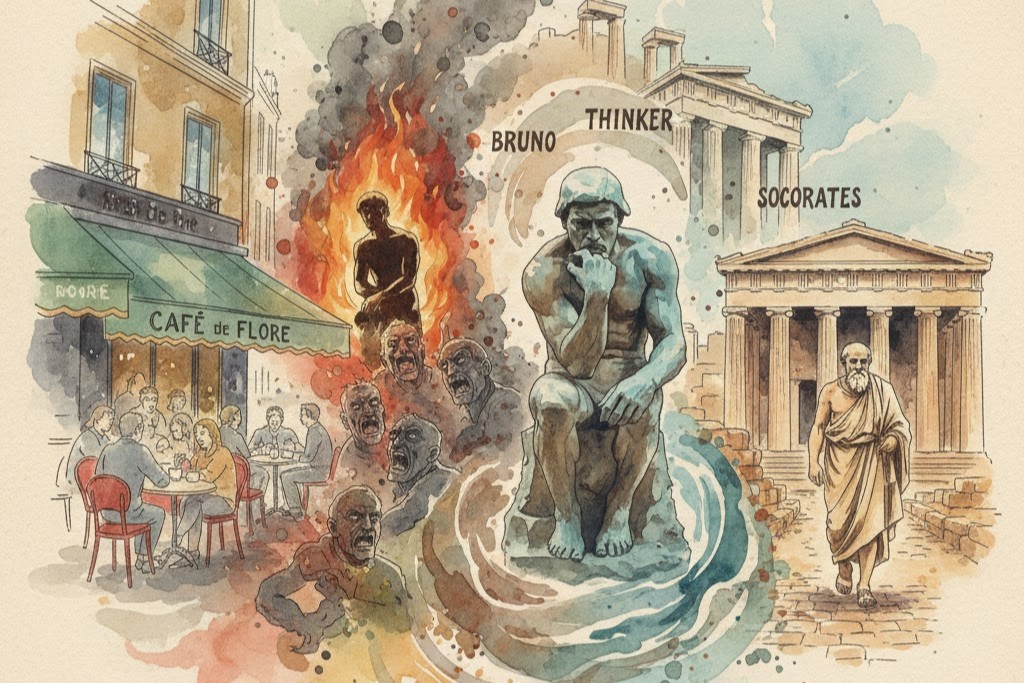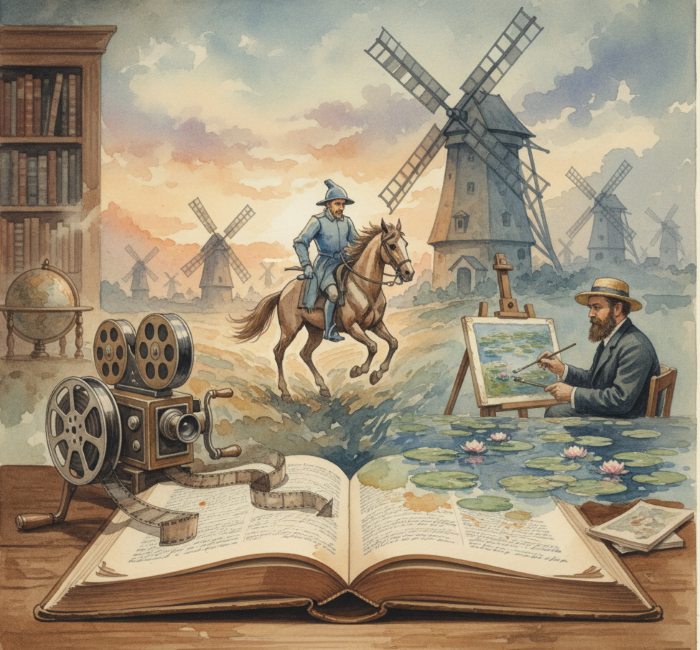
The Compass of a Life
My research is driven by a mission to investigate the core structures of educational inequality. This work is serious and necessary, which is why I find personal joy in the small, quiet things that offer a break. I find deep satisfaction in travelling, and my enjoyment is not reserved for grand destinations. A simple walk along a creek, with the dappled light on the water, or an afternoon spent discovering an unnamed small town can offer the same deep sense of renewal as a famous landmark.
This appreciation for quiet focus extends to my hobbies. I am a keen chess player, though I do not pursue a high rating. My love for the game is a mental habit inherited from my grandfather, with whom I have played since childhood. Its demand for deep concentration provides a pleasant, internal challenge that clears the mind.
Solo travel is a source of great personal fulfilment, and it is here that my intellectual and personal worlds beautifully meet. My preference for solitude is perfectly matched by a profound appreciation for museums. I do not simply like them; I immerse myself in them. To me, they are not just repositories of art or history; they are structured, physical archives of human effort and creativity. Wandering their quiet halls feels like a real-world extension of the same archival instinct that drives my writing.
In both life and work, I prioritise small joys over the demands of sprawling, complex schedules. This focus on immediate, tangible pleasure, be it a quiet corner in a faraway village or an hour spent contemplating a single piece of art, is a crucial element of self-care. These moments are not indulgences; they are the necessary foundation that sustains me. They provide the clarity and calm required to tackle the vast challenges of decolonisation and educational reform that define my intellectual journey. In short, they ensure that my pursuit of a grander, more equitable world is fuelled by an appreciation for the beauty already present in this one.


